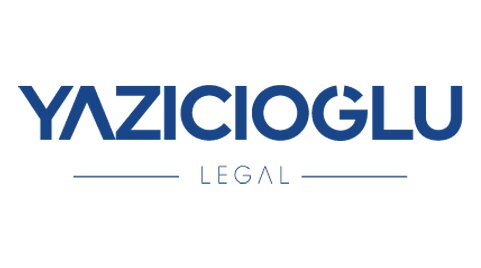Best Fintech Lawyers in Turkey
Share your needs with us, get contacted by law firms.
Free. Takes 2 min.
Or refine your search by selecting a city:
List of the best lawyers in Turkey
About Fintech Law in Turkey
Fintech, short for financial technology, is a rapidly evolving sector in Turkey that integrates technology into offerings by financial services companies, aiming to improve their use and delivery to consumers. The Turkish Fintech industry is experiencing significant growth, supported by increased smartphone usage, a tech-savvy population, government incentives, and expanding digital infrastructure. To regulate this burgeoning field, Turkish authorities have implemented a series of laws to oversee and facilitate secure and efficient financial services. Local regulations are adapting to address the complexity and dynamism inherent in fintech developments, establishing a legal framework conducive to innovation while safeguarding consumer interests.
Why You May Need a Lawyer
Engaging with the fintech industry in Turkey often involves navigating complex legal landscapes, which makes legal assistance crucial in several scenarios. Here are a few common situations where you might require legal help:
- Start-up Formation: Legal guidance is essential when setting up a fintech business to ensure compliance with local business laws and regulations.
- Regulatory Compliance: Understanding the rules surrounding financial activities, including licensing and operational compliance, is vital.
- Contractual Issues: Drafting clear, enforceable agreements for partnerships, customer engagements, or technology usage.
- Intellectual Property (IP): Protecting proprietary technology, software, and branding from infringement.
- Data Protection: Navigating privacy laws, particularly around data storage and consumer information security.
- Dispute Resolution: Legal support is often necessary for resolving conflicts that arise from business operations or customer interactions.
- Cross-Border Transactions: Advising on legal requirements and implications of international financial operations.
Local Laws Overview
The fintech landscape in Turkey is governed by several key pieces of legislation and regulatory bodies, which collectively aim to foster innovation while ensuring consumer protection and financial stability:
- Regulation of Payment Services: The Law on Payment and Securities Settlement Systems, Payment Services and Electronic Money Institutions regulates electronic payments, requiring licensing by the Banking Regulation and Supervision Agency (BRSA).
- Data Protection Law: The Personal Data Protection Law (KVKK) aligns with the GDPR framework to protect consumer data, imposing strict controls on personal data handling.
- Financial Crimes Regulation: Adherence to anti-money laundering (AML) and combating the financing of terrorism (CFT) regulations is mandatory.
- Blockchain and Cryptocurrencies: Cryptocurrency transactions are subject to taxation, and financial regulators have a cautious approach towards blockchain technologies pending further legislation.
Frequently Asked Questions
What is the current legal status of cryptocurrencies in Turkey?
Crypto assets are not considered as legal tender in Turkey, but trading in cryptocurrencies is legal. However, financial institutions are prohibited from engaging with these digital assets beyond supporting exchanges.
Do I need a special license to operate a fintech company in Turkey?
Yes, fintech businesses, particularly those dealing with payment services, electronic money, or digital wallets, require licenses from the BRSA.
How can I protect my fintech intellectual property in Turkey?
Engage with IP law attorneys to register trademarks, patents, and copyrights. Turkey is also a signatory to major international IP treaties.
Is there government support available for fintech start-ups?
Yes, the Turkish government offers various incentives, including grants, tax benefits, and R&D support initiatives for start-ups.
How do I ensure data compliance with Turkish laws?
Implement robust data protection strategies, adhere to KVKK guidelines, and possibly consult with data privacy experts to ensure compliance.
What are the penalties for non-compliance with financial regulations?
Penalties can range from fines and sanctions to the revocation of operating licenses, depending on the severity of the non-compliance.
Can foreign investors participate in Turkish fintech industries?
Yes, foreign investors can participate but should comply with local investment laws and regulations, which may require specific legal advice.
What are the taxation rules for fintech companies?
Fintech companies are subject to corporate tax, VAT, and must adhere to specific tax rules applicable to electronic services and transactions.
Are there specific cyber laws for fintech in Turkey?
Cybersecurity is governed by general IT laws and sector-specific regulations, emphasizing data security, fraud prevention, and risk management.
How is consumer protection addressed in fintech regulations?
There are comprehensive consumer protection laws in place, including transparency requirements, fair business practices, and mechanisms for handling complaints.
Additional Resources
For further support and detailed information, consider exploring these resources:
- Banking Regulation and Supervision Agency (BRSA): The primary body for financial supervision.
- Turkish Data Protection Authority: For guidance on data compliance.
- The Union of Chambers and Commodity Exchanges of Turkey (TOBB): Offers resources for startups and business owners.
- StartupTurkey Platform: A community and resource hub for entrepreneurs.
Next Steps
If you are seeking legal assistance in the fintech field in Turkey, consider the following steps:
- Identify Your Needs: Clarify the specific legal issues or questions you have regarding your fintech venture.
- Research Law Firms: Look for law firms or legal advisors with a strong background in fintech law in Turkey.
- Consult with Experts: Engage with legal experts to discuss your case, seek advice, and understand your options.
- Plan and Act: Work with your legal advisor to develop a tailored action plan addressing compliance, expansion, or any other legal matters.
Lawzana helps you find the best lawyers and law firms in Turkey through a curated and pre-screened list of qualified legal professionals. Our platform offers rankings and detailed profiles of attorneys and law firms, allowing you to compare based on practice areas, including Fintech, experience, and client feedback.
Each profile includes a description of the firm's areas of practice, client reviews, team members and partners, year of establishment, spoken languages, office locations, contact information, social media presence, and any published articles or resources. Most firms on our platform speak English and are experienced in both local and international legal matters.
Get a quote from top-rated law firms in Turkey — quickly, securely, and without unnecessary hassle.
Disclaimer:
The information provided on this page is for general informational purposes only and does not constitute legal advice. While we strive to ensure the accuracy and relevance of the content, legal information may change over time, and interpretations of the law can vary. You should always consult with a qualified legal professional for advice specific to your situation.
We disclaim all liability for actions taken or not taken based on the content of this page. If you believe any information is incorrect or outdated, please contact us, and we will review and update it where appropriate.
Browse fintech law firms by city in Turkey
Refine your search by selecting a city.















